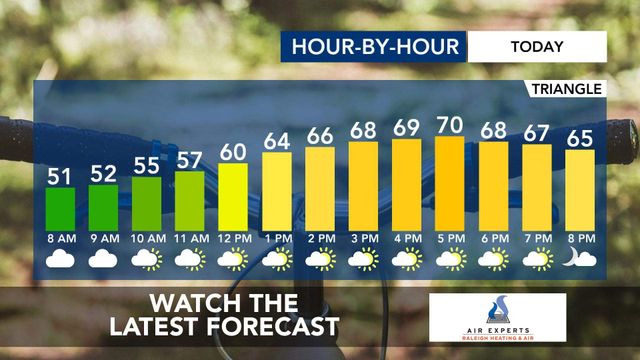High schoolers debate: Fear on both sides of HB2

Public school students make up one of the largest groups directly affected by House Bill 2. More than a million North Carolina students spend most of their day in facilities where they are now prohibited from using restrooms that do not correspond to the sex listed on their birth certificates. The new law presents problems for the state's transgender students and conflicts practices at several school districts that allow students to use the restrooms that correspond to their gender identity.
Hunter Schafer wore a skirt in public for the first time on the last day of her freshman year at Broughton High School in Raleigh.
"I’d kind of been existing in between looking like a guy and looking like a girl," Schafer said. "And this is all based on stereotypes, but wearing that skirt kind brought me so much closer to feeling like I looked like a girl."
Schafer is now a junior at the UNC School of the Arts high school. She identifies as a transgender woman but was designated male at birth. Schafer looks stereotypically feminine. She wears her blond hair long, and her eyelashes are coated with light mascara. Hormone therapy prevents her from growing facial hair, which Schafer says she can’t imagine having.
"Facial hair just terrified me," Schafer explained, visibly cringing at the thought. "That was something that just did not resonate with me at all. You know, I can’t really explain why.
Schafer uses the girls' restroom at school. But that means, since the passage of HB2, Schafer is breaking the law each time she goes to the bathroom. The law allows Schafer to use a gender-neutral restroom. But she says there aren’t enough of them.
"I don't know how comfortable I am using the men's restroom looking and feeling the way I do, like that's not where I belong," Schafer said.
The art student says using the boys’ room would put her in situations multiple times a day where she may have to explain that she is transgender. Schafer says she’s proud of who she is, but that outing herself is still stressful, and using the boys' room runs contrary to her identity.
"It’s degrading to be put into a box you don’t fit into," she said.
At Broughton High School, where Schafer went for her freshman and sophomore years, about 30 students gathered in a German classroom after school to debrief on HB2. Maggie Behm, with the Broughton Feminists, started the discussion with a PowerPoint presentation.
"They’ve been referring to this as a bathroom bill, but this thing is so far-reaching. It goes so far beyond bathrooms," Behm explained to the group.
These students have done their research. They have a list of newspaper articles to send out, they know about the multiple provisions and the bill’s economic fallout. Many in this group identify as lesbian, gay, bisexual or transgender, or know someone else who does.
Junior Ellie Bonifant is president of Broughton's Sexuality and Gender Acceptance club. She’s close to Schafer and stood by her through her transition.
"Being able to connect it to a person that I knew and someone that I care about a lot very much made the bill hit home more," Bonifant said.
But not all high school students have fluid ideas about gender. During the special session lawmakers held to pass HB2, Greenville Christian Academy student Chloe Jefferson spoke out against a Charlotte ordinance that would have allowed people to use restrooms that aligned with their identities.
"When the Charlotte city council passed the bathroom ordinance, I was immediately fearful," Jefferson told lawmakers.
"Changing in front of my girl peers is already intimidating enough. Now we add the possibility of my male peers changing and showering alongside me. This is something that makes me, and I’m sure other girls, even more self-conscious. Girls like me should never be force to undress or shower in the presence of boys," she said.
At the UNC School of the Arts, Hunter Schafer says she will continue to use the girls' restroom, and that no one at school has told her to stop. While she says HB2 has been a source of stress, she hopes debate about it will lead to more understanding of trans issues.
This report first appeared on WUNC/North Carolina Public Radio as part of its education coverage. Jess Clark is the 2015-16 Fletcher Fellow focused on education policy reporting. The Fletcher Fellowship is a partnership between WUNC and UNC’s School of Media and Journalism funded in part by the Fletcher Foundation. Articles produced by the Fletcher Fellow are considered to be "open content” that others can republish with permission.









